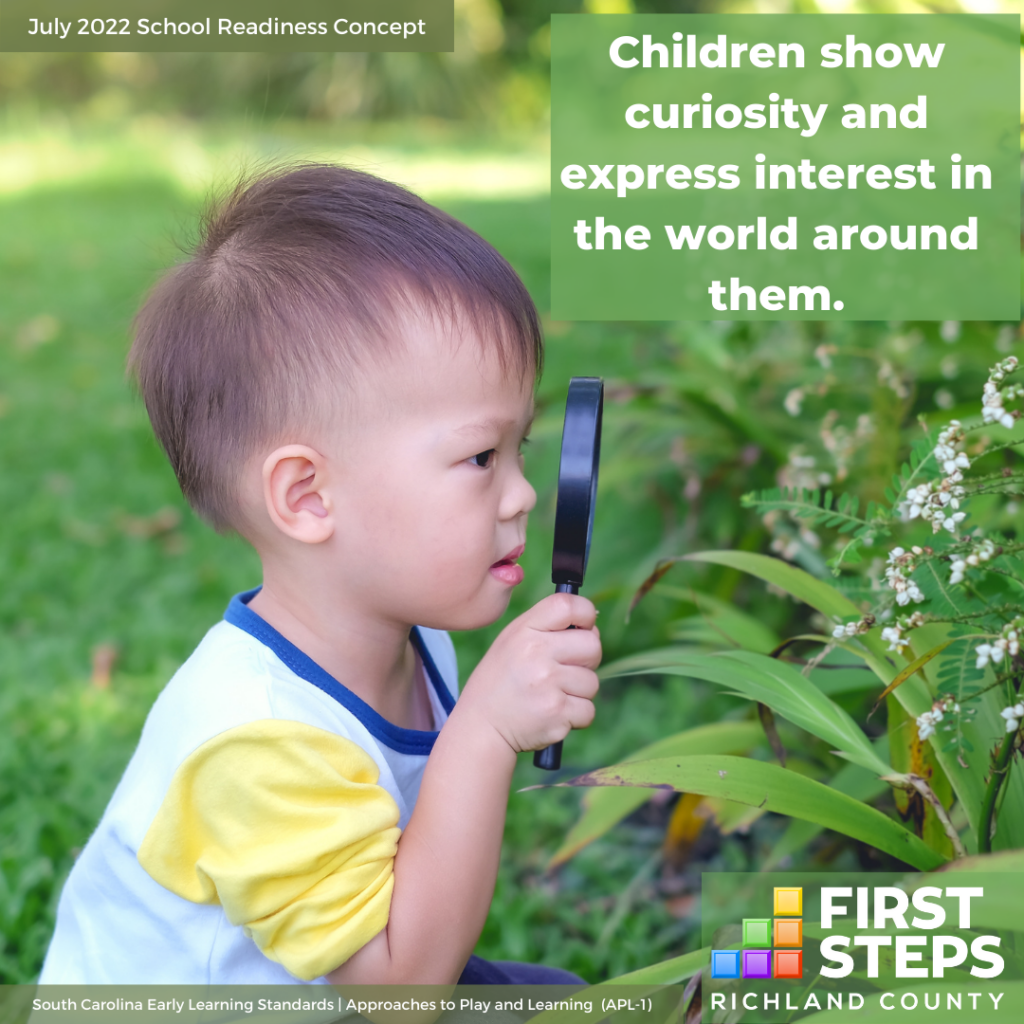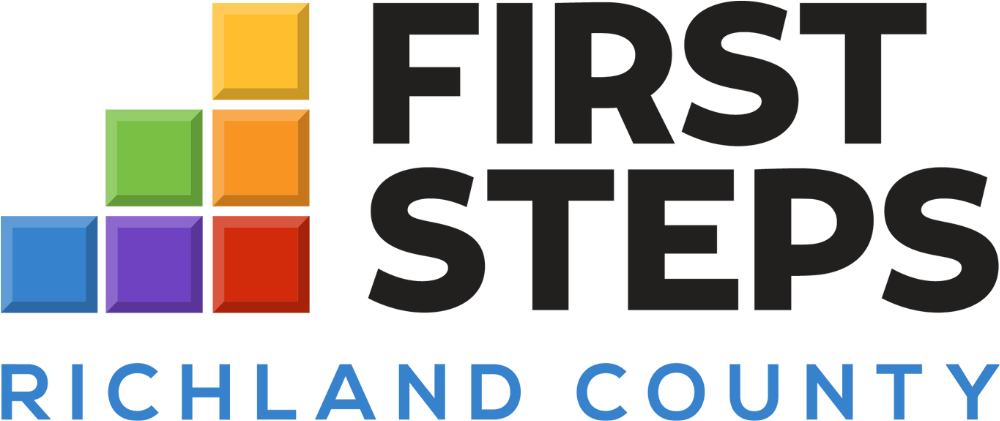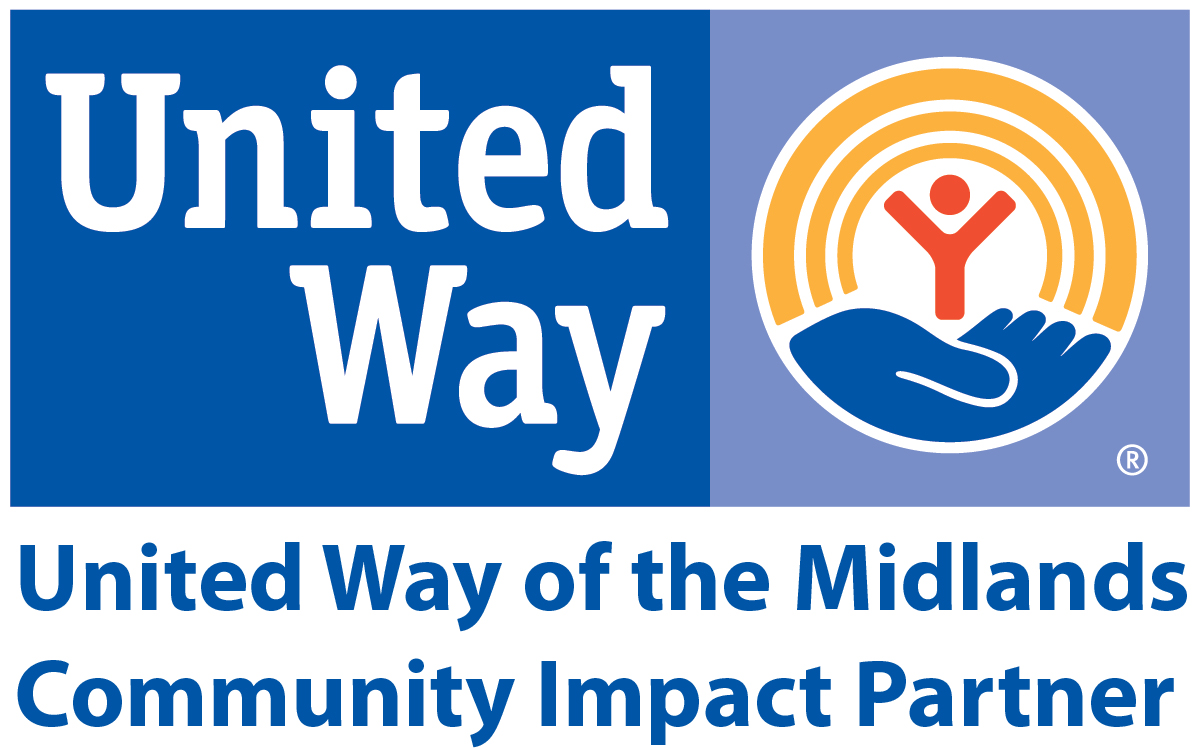
Each month, Richland First Steps selects one school readiness goal from the SC Early Learning Standards (SCELS) to spotlight throughout our programs for children, families, and child care providers.
This month’s concept comes from the Approaches to Play and Learning domain of the SCELS. Like all of the standards, there are developmental indicators that show a child’s progress on this goal at each stage:
Infants (Birth to 12 months)
- Show interest in others (smile or gaze at caregiver, make sounds or move body when other person is near).
- Show interest in themselves (watch own hands, play with own feet).
- React to new sights, sounds, tastes, smells, and touches (stick out tongue at first solid food, turn head quickly when door slams).
Younger Toddlers (8 to 21 months)
- Imitate what others are doing.
- Show curiosity about their surroundings (with pointing, facial expressions, words).
- Show pleasure when exploring and making things happen (clap, smile, repeat action again and again).
Older Toddlers (18 to 36 months)
- Show pleasure in new skills and in what they have done.
- Discover things that interest and amaze them, and seek to share them with others.
- Watch what others are doing and often try to participate.
Younger Preschoolers (36 to 48 months)
- Communicate interest to others through verbal and nonverbal means (take teacher to the science center to see a new animal).
- Discover things that interest and amaze them, and seek to share them with others.
- Show interest in a growing range of topics, ideas, and tasks.
Older Preschoolers (48 to 60+ months)
- Communicate interest to others through verbal and nonverbal means (take teacher to the science center to see a new animal).
- Discover things that interest and amaze them, and seek to share them with others.
- Show interest in a growing range of topics, ideas, and tasks.
- Demonstrate interest in mastering new skills (e.g., writing name, riding a bike, dance moves, building skills).
Learn more:

